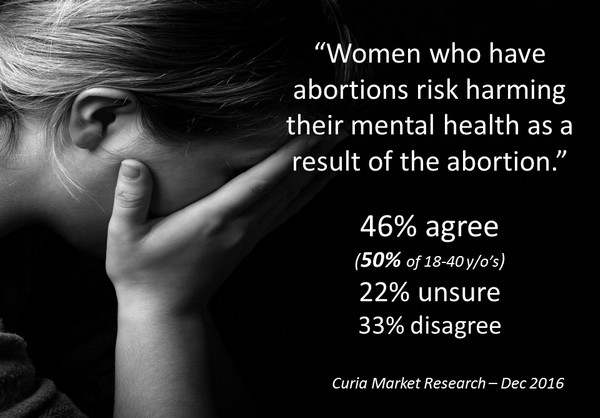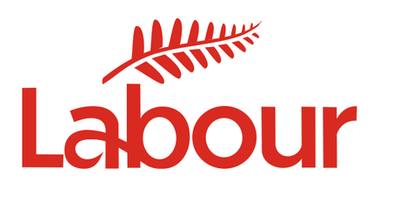Women Need To Know Risks of Abortion – Study
 Media Release 23 March 2018
Media Release 23 March 2018
A research paper for health professionals which reviews international evidence to date about the relationship between abortion and the physical and mental health of women says that abortion is associated with a wide range of adverse physical and psychological outcomes, and it is essential that women are made fully aware of all the risks.
“Abortion and the Physical and Mental Health of Women – A review of the evidence for health professionals” is written by bioethicist Dr Gregory Pike, and summarises the considerable international research undertaken on the physical and psychological impact on women, and also on the circumstances surrounding the decision-making process. It concludes that while studies on abortion have sometimes yielded inconsistent results, there is a clear correlation between abortion and adverse psychological outcomes.
Other conclusions based on the research analysis include:
- Intimate partner violence (IPV) is strongly correlated with abortion, with some research showing a 6-fold increase of IPV in women undergoing abortion compared to those in antenatal care. Abortion has also been linked to international trafficking and slavery of women. Presentation for abortion may be an opportunity to address the risk of coercion and intimate partner violence.
- Ambivalence to abortion is common and is linked to some adverse post-abortion outcomes.
- The prevalence of foetal abnormalities has increased in many countries and women commonly report a lack of information provided to them about the child’s condition, and the options open to them. (an example was recently covered in the NZ media)
- The physical effects of abortion include an increased risk of premature delivery in subsequent pregnancies, and this appears to be related to surgical abortion but not medical abortion.
- Significant inconsistencies exist in research about a possible link between abortion and the risk of breast cancer, yet there is evidence showing that carrying a pregnancy to term is protective against breast cancer.
In one significant finding, the research suggests that medical abortions outstrip surgical ones by a factor of at least four when it comes to the overall incidence of complications. A Finnish study of almost 43,000 women found that “the incidence of adverse events was 4 times higher in medical versus surgical abortion (20% v 5.6%). Moreover, haemorrhage in medical versus surgical abortions was significantly higher at 15.6% compared with 2.1%, as was incomplete abortion (6.7% v 1.6%).”
“This is concerning given that the Abortion Supervisory Committee has recently told politicians that it would be safer for women having a medical abortion to take the medicine at home. In fact, the Scottish government guidance says a woman must have another adult with her and the pill must only be taken up to ten weeks gestation, indicating that it’s not a straightforward procedure,” says Marina Young, spokesperson for Family First NZ, which commissioned the research.
The research paper also includes NZ-based studies including the University of Otago study in 2008 which found that women who had an abortion faced a 30% increase in the risk of developing common mental health problems such as depression and anxiety. And a research paper entitled “Does abortion reduce the mental health risks of unwanted or unintended pregnancy? A re-appraisal of the evidence” by Professor David Fergusson, John Horwood, and Joseph Boden which was published in the 2013 edition of the Australian and New Zealand Journal of Psychiatry concluded that the evidence shows that abortion was not associated with a reduction in rates of mental health problems, but was associated with increases in risks of anxiety, alcohol and drug misuse, and suicidal behavior. They state: “There is no available evidence to suggest that abortion has therapeutic effects in reducing the mental health risks of unwanted or unintended pregnancy. There is suggestive evidence that abortion may be associated with small to moderate increases in risks of some mental health problems.”
 “New Zealanders want women to make an informed decision. In a poll of NZ’ers in 2011, the majority of New Zealanders (64%) said that women considering abortion have the right to be fully informed of the medical risks of abortion – and the alternatives. And a 2016 survey asked respondents whether they agreed with the following statement: “Women who have abortions risk harming their mental health as a result of the abortion.” Overall, 46% agreed with the statement, 21% were unsure or didn’t say, and only 33% disagreed. Significantly, strongest agreement with the statement came from the younger 18-40 age bracket (50%),” says Mrs Young.
“New Zealanders want women to make an informed decision. In a poll of NZ’ers in 2011, the majority of New Zealanders (64%) said that women considering abortion have the right to be fully informed of the medical risks of abortion – and the alternatives. And a 2016 survey asked respondents whether they agreed with the following statement: “Women who have abortions risk harming their mental health as a result of the abortion.” Overall, 46% agreed with the statement, 21% were unsure or didn’t say, and only 33% disagreed. Significantly, strongest agreement with the statement came from the younger 18-40 age bracket (50%),” says Mrs Young.
“We highly recommend this paper to all health professionals who believe that women should be fully informed of the choices they may make.”
ENDS





